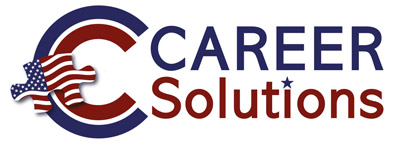Is your job search messy and out of control? Are you overwhelmed with trying to keep track of who you talked to, who you have applied with, or can’t find the business card of the recruiter you met? Did you miss an appointment or forget to follow up with a contact? Do you have sticky notes everywhere? So many that you could start a bonfire?
You’ve heard the saying “time is money.”
Most likely, you’ve read or been told that if you are unemployed, your JOB is to spend at least 40 hours a week conducting a job search. So job searching is your job, but without the pay you’d be getting if you were employed full time and being compensated for the value you bring to the organization.
To be as efficient as possible in your job search, whether it’s 5 hours a week or 40+, you’ll need an efficient tracking system. Whether you track the information yourself or use a tracking system that has the structure built in, the amount of data to be tracked can make you feel overwhelmed—or even like you are drowning.
The key to keeping your job search organized is to use a method that assists you in organizing what really matters. It has to be a method that works for you—electronic, hard copy, or a combination—a system that uses your natural style for efficiency and effectiveness, or one that you can learn easily.
If you aren’t very computer savvy, a hard copy system may work best. Alternatively, if you despise paper, make it digital and start with a consistent naming convention for your digital files that will help you stay organized. Some people need a combination system of both hard copy and electronic. Find what works best for you and stick with it.
Here are guidelines for organizing your job search:
1. Log the conversations you have. Also log meetings, networking events, volunteer hours, contact names as well as people who provided you with contact names. This is one of the most important things you can do. After a while, it could be challenging to remember the details. You might need to look up something from a past conversation, networking event, or meeting.
2. Track or log WHEN you made contact. This way you can reference it in correspondence to remind them when you last spoke—contact name, date, time, and their email address.
3. Keep track of organizations, companies, and people of interest. These come from your research, correspondence (sent and received), and job applications to date including all associated correspondence and the job announcement identification.
4. Copy and paste the job announcement into a document and/or print a hard copy. Copying the link is inadequate as closed job postings are frequently taken down making them difficult or even impossible to refer to after the job closes.
MAGNETIC TIP: Keep a copy of the job announcement so you can refer to it to refresh when you are called to interview.
We recommend to our clients that they study the job announcement thoroughly and become very familiar with parts of the job announcement including the mission of the organization, specialized experience, qualifications, and responsibilities of the position. In fact, one of our clients was hired because he spoke about the mission of the agency so eloquently in the interview.
5. Make sure you track your expenses! Did you know that certain job search expenses can be tax deductible? Speak with your accountant or tax preparer to see if your expenses are deductible or you can refer to irs.gov.
6. Keep track of the positions you have applied to… As well as the names and contact information for people you interacted with in your research.
7. Track which resume you sent for each job announcement.
MAGNETIC TIP: Name your resume document appropriately. Don’t just name it Resume.doc.
Here’s a naming convention that we recommend:
John Doe – Resume – Accountant – IRS.doc
We advise against using underscores. The dash/hyphen looks more modern, and even takes less effort to type. You’ll want to track:
8. Your references – Specifically those you list on your resume. Did you contact them to get their permission? Do they have a current copy of your resume? Have you let them know who was calling?
9. Application statuses – Ensure you provide all required information when you initially apply; however, you may be asked to provide additional information.
10. Your time – Be accountable to yourself for the time you give to your job search. When you have to account for it, you will be more inclined to track it. In fact, pretend you are getting paid for it—eventually your investment will pay off!
Daily tracking will ease job search frustration.
It will help you recall important details and be extra prepared when contacted by a potential employer. In addition, tracking your information will help you be more prepared for networking conversations and be more strategic in making your next move.
![]()
If you’d like to try an electronic tool to help you manage all this data, we recommend using JibberJobber*. It’s an effective tracking system that you can use from a desktop or mobile app.
The Getting Started section of the Video Library will help you get up and running in no time. It will help you manage and organize all the details that really add up to make a difference in how you approach your job search. This tool also comes with top-notch support and you can try it free for 7 days.
*We may earn a small commission if you sign up for JibberJobber. The annual fee is affordable at only $60 per year. So, we believe it is worth your time to review.
Your job search requires daily nurturing, motivation, and maintenance, just like you maintain your physical body through daily hygiene, diet, and exercise.
Most importantly, when you manage your job search by organizing all the data, YOU are in control. Otherwise, it has the potential to get messy—really fast.
Do you use JibberJobber or an electronic job search tool?
In conclusion, please leave a comment below and let us know what you think about organizing your job search. What ways do you recommend? We’d love to hear from you!


